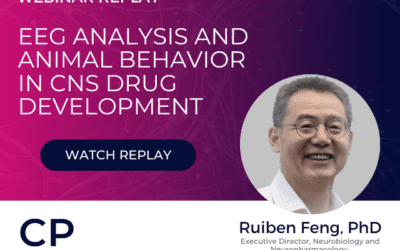Presented by: Manuel Sanchez-Felix, PhD, Senior Fellow, Novel Delivery Technologies Group at Novartis Institutes for BioMedical Research & Robert Tarran, PhD, President and CSO, Eldec Pharmaceuticals and Professor of Cell Biology & Physiology at the University of North Carolina at Chapel Hill (UNC)
Patient-centric design for systemic peptide delivery: Trends in routes of administration and advancement in drug delivery technologies
Abstract:
Utilizing peptides as therapeutic agents is considered an attractive approach for treating various diseases due to their high binding and selectivity to novel drug targets. However, the physicochemical properties of peptides make them challenging to administer exogenously, which places a high burden on drug delivery technology selection to successfully achieve the desired response. Various peptide drug delivery systems have been used in clinical and marketed products to overcome the problems associated with exogenous administration of peptide therapeutics. This presentation covers trends observed pertaining to the delivery of peptides such as changes in the routes of administration, advancements in formulation platforms, patient-centric product design, and various other aspects of peptide delivery. Harnessing the Lung’s Naturally Occurring Peptidome to Generate Novel Therapeutics Abstract:
Airway secretions contain ~1000 proteins and peptides that play important roles in regulating lung homeostasis. In many lung diseases including cystic fibrosis (CF), chronic neutrophilia and infection lead to an increase in free protease levels that induce protein/peptide cleavage, suggesting an impaired/altered functionality. Little is known about the peptidome of airway secretions. Here, we set out to define the normal and CF peptidomes and to use them as a drug library for future studies. We size-fractionated sputum from normal and CF subjects and studied these fractions by LC-MS/MS without conventional tryptic digestion in order to detect endogenously produced peptides. We identified ~130 endogenous peptides in normal sputum and ~700 peptides that were common to all CF patients. Interestingly, only 60 peptides were seen in both normal and CF subjects. Using principle component analysis and k-means
clustering, we found that the normal and CF peptidomes were p<0.00013 different. Since little is known about the functionality of the normal and CF peptidomes, we utilized SPOT synthesis technology to make a library of these peptides that included the entire normal and CF peptidomes. We then performed high content imaging using 384 well plates in order to determine whether these peptides could affect cell growth, cell Ca2 + and some other parameters including viral infection with respiratory syncytial virus and a pseudotyped SARS-CoV-2 S1 virus. Using this approach, we identified peptides that inhibited Ca2 + signaling, which Eldec is now developing as novel immunomodulatory peptides for lung diseases including pneumonia, asthma and fibrosis, and also identified novel antiviral peptides. These data indicate that peptidome screening is a feasible starting point for developing novel peptide-based therapeutics. — Funded by the NIH and North Carolina Biotechnology Center.




